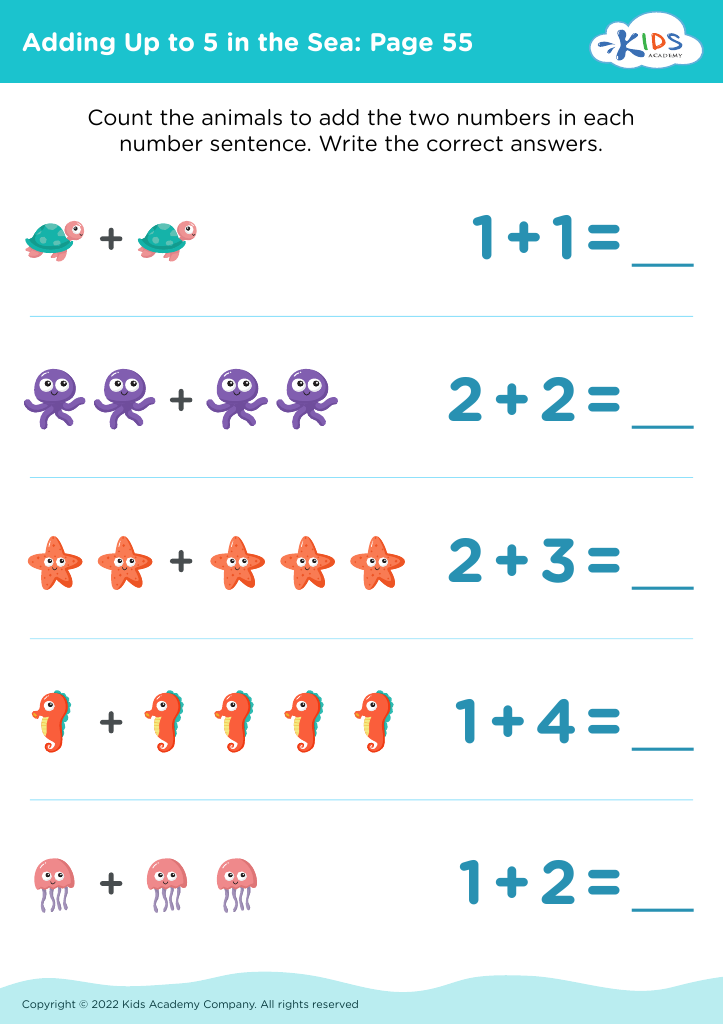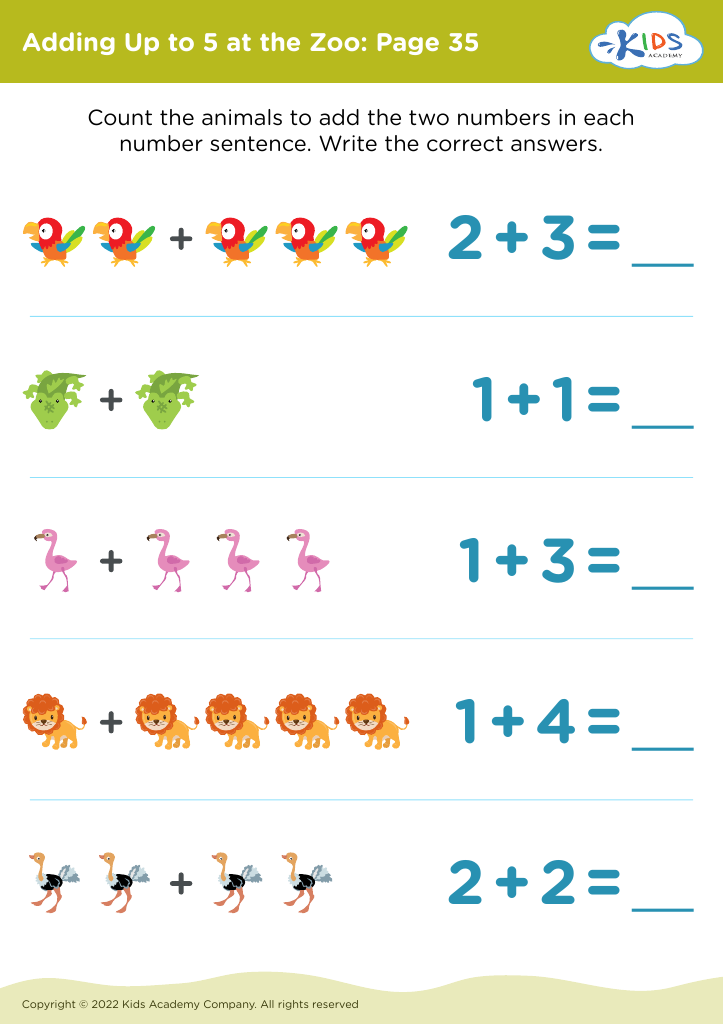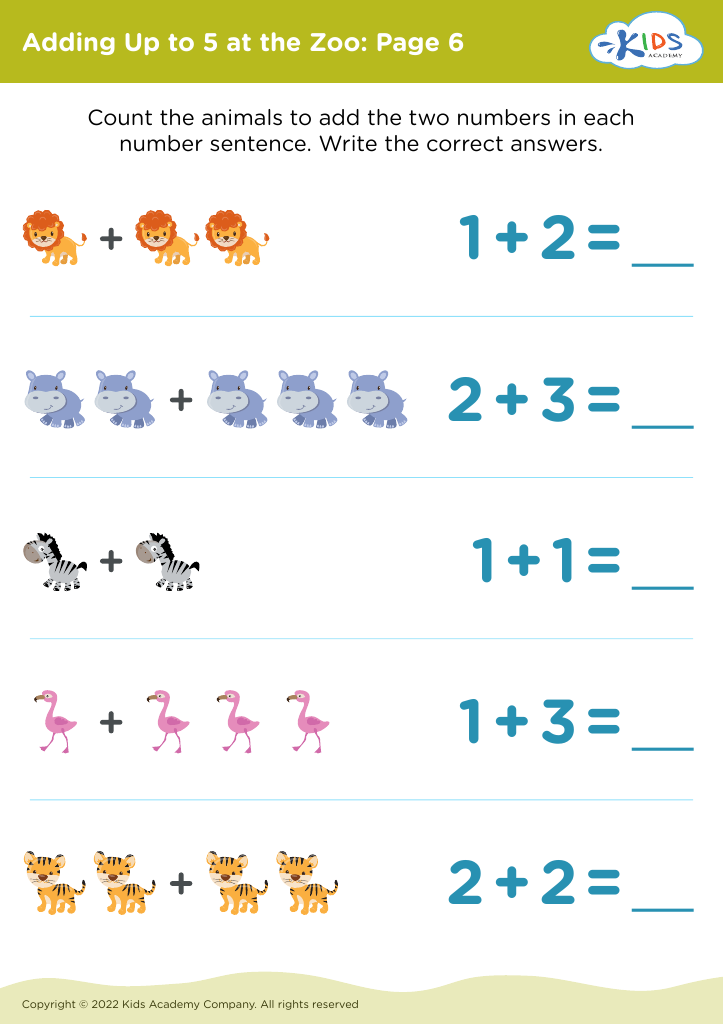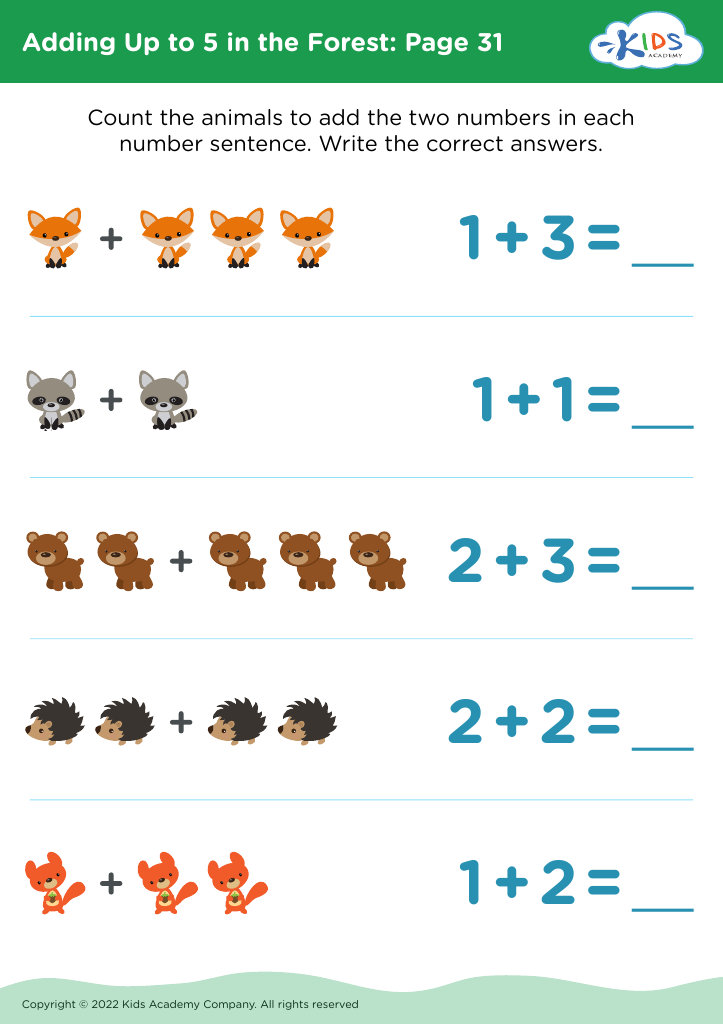Enhances concentration Addition Worksheets for Ages 3-6
4 filtered results
-
From - To
Our "Enhances Concentration Addition Worksheets for Ages 3-6" are designed to boost focus and mathematical skills. Perfectly tailored for young learners, these worksheets provide engaging and interactive addition exercises that are both fun and educational. Each sheet encourages children to concentrate, helping them to develop critical thinking skills and improve their attention span. As they progress through the activities, children will build a strong foundation in basic math while also enhancing their ability to stay focused on tasks. Make learning addition enjoyable and effective with our specially crafted worksheets for early development.
Enhancing concentration in children aged 3-6 lays a crucial foundation for lifelong learning and development. At this early stage, children's brains are incredibly malleable, making it an ideal time to nurture skills that will benefit them throughout their lives. Improved concentration allows children to engage deeply with their activities and lessons, which can lead to a more profound understanding and retention of information. This is critical for mastering fundamental concepts such as language, math, and social skills, setting the stage for academic success.
When young children can focus and sustain attention, they are better equipped to follow instructions, complete tasks, and solve problems. This inevitably reduces frustration and boosts self-confidence, promoting a positive attitude towards learning and school. Additionally, enhanced concentration helps children develop patience and impulse control, essential traits for future personal and academic success.
For parents and teachers, fostering concentration skills can lead to more efficient learning environments. With improved focus, children likely require less time to grasp basic concepts, making teaching more effective and enjoyable. Simple strategies such as structured routines, engaging activities, and minimizing distractions can significantly contribute to this developmental milestone. Ultimately, investing in the concentration abilities of young children sets them up for a brighter, more competent future.

























